
The rationale for treating favorable-risk metastatic renal cell carcinoma with early, aggressive therapy and considerations for approaching disease progression.

Your AI-Trained Oncology Knowledge Connection!


The rationale for treating favorable-risk metastatic renal cell carcinoma with early, aggressive therapy and considerations for approaching disease progression.

Oncologists discuss how they select an appropriate novel combination strategy as first-line therapy for patients with favorable-risk metastatic renal cell carcinoma.

Factors that oncologists need to consider when deciding whether to initiate single-agent therapy or a novel combination regimen as frontline treatment for patients with favorable-risk metastatic renal cell carcinoma.
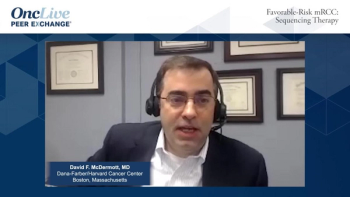
Best approaches to sequencing therapy for patients with favorable-risk metastatic renal cell carcinoma following first-line therapy with novel combinations such as ipilimumab and nivolumab.
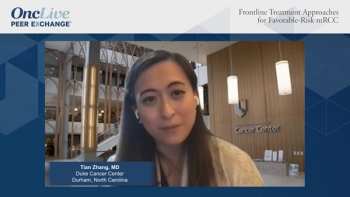
Current treatment approaches that can be used to treat favorable-risk metastatic renal cell carcinoma in the first-line setting and implications for individualizing therapy despite guidance provided by the IMDC criteria.
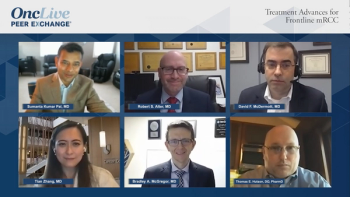
Bradley A. McGregor, MD, of the Dana-Farber Cancer Institute, reacts to the emergence of new treatment gaps associated with novel combination regimens as first-line therapy for patients with metastatic renal cell carcinoma.
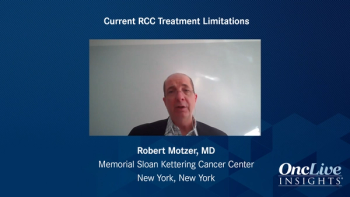
Health care experts remark on current unmet needs associated with the use of novel therapies, such as immunotherapies, and targeted treatments for metastatic renal cell carcinoma and share advice on best practices when managing patients in the community.
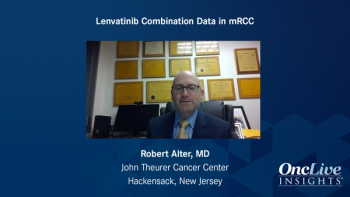
Robert Alter, MD, highlights various trial data on the management of advanced renal cell carcinoma with the combination of lenvatinib and everolimus, also commenting on the potential outcomes associated with the use of lenvatinib with pembrolizumab.

Robert Motzer, MD, describes what lenvatinib is and explains the rationale for studying its use in combination with novel therapies such as everolimus as treatment for metastatic renal cell carcinoma.
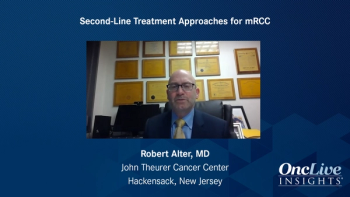
Oncologists discuss their preferences in regard to second-line therapy for metastatic renal cell carcinoma, and optimal timing for changing regimens based on responses to treatment.

Factors that prompt oncologists to move to second-line therapy to treat metastatic renal cell carcinoma.

Variables that influence an individualized first-line treatment approach for advanced renal cell carcinoma.
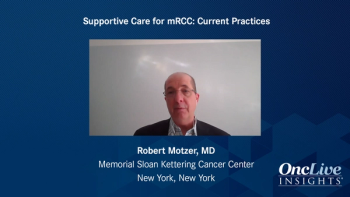
Drs Robert Alter and Robert Motzer discuss the rationale and use of surgery as supportive care to treat appropriate patients with metastatic renal cell carcinoma.
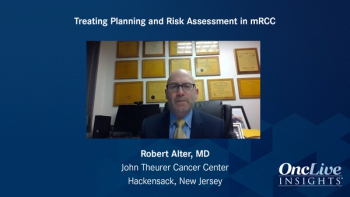
The importance of risk assessment when selecting frontline therapy to treat advanced renal cell carcinoma and factors to consider when talking with patients about goals of therapy.
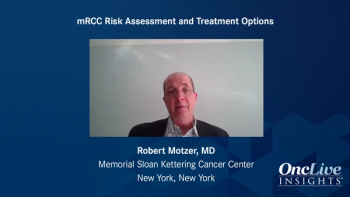
Preferred treatment regimens that incorporate novel therapies used to treat patients with metastatic renal cell carcinoma based on risk status.
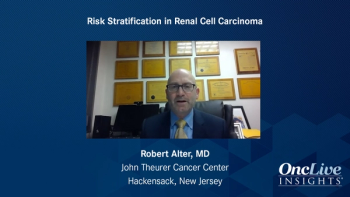
A historical overview regarding the development of parameters used to help stratify risk in patients with renal cell carcinoma and the relevance of current models in the context of selecting systemic therapy to treat appropriate patients.
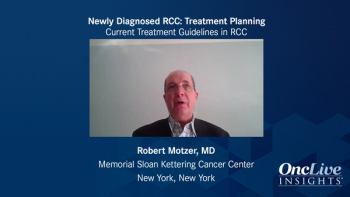
Guidelines and recommendations by clinicians on treatment approaches for newly diagnosed renal cell carcinoma and regimens in the pipeline that may impact future treatment.
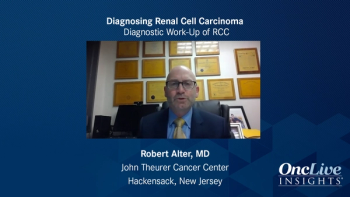
Advice to health care providers on when to refer patients for further assessment of potential renal cell carcinoma and insight on the types of diagnostic tests used to help confirm a diagnosis in the era of molecular testing.

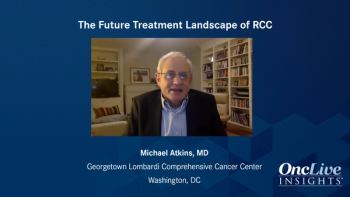









As the biology of renal cell carcinoma becomes better understood, so does the management of the disease, including the use of novel therapies.